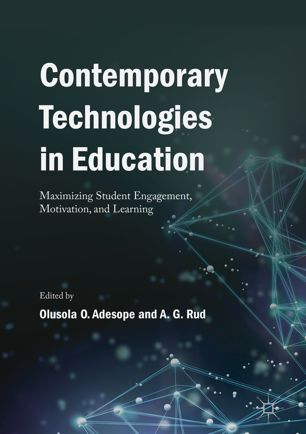

Most ebook files are in PDF format, so you can easily read them using various software such as Foxit Reader or directly on the Google Chrome browser.
Some ebook files are released by publishers in other formats such as .awz, .mobi, .epub, .fb2, etc. You may need to install specific software to read these formats on mobile/PC, such as Calibre.
Please read the tutorial at this link: https://ebookbell.com/faq
We offer FREE conversion to the popular formats you request; however, this may take some time. Therefore, right after payment, please email us, and we will try to provide the service as quickly as possible.
For some exceptional file formats or broken links (if any), please refrain from opening any disputes. Instead, email us first, and we will try to assist within a maximum of 6 hours.
EbookBell Team

0.0
0 reviewsThis edited volume provides a critical discussion of theoretical, methodological, and practical developments of contemporary forms of educational technologies. Specifically, the book discusses the use of contemporary technologies such as the Flipped Classroom (FC), Massive Open Online Course (MOOC), Social Media, Serious Educational Games (SEG), Wikis, innovative learning software tools, and learning analytic approach for making sense of big data. While some of these contemporary educational technologies have been touted as panaceas, researchers and developers have been faced with enormous challenges in enhancing the use of these technologies to arouse student attention and improve persistent motivation, engagement, and learning. Hence, the book examines how contemporary technologies can engender student motivation and result in improved engagement and learning. Each chapter also discusses the road ahead and where appropriate, uses the current trend to predict future affordances of technologies.